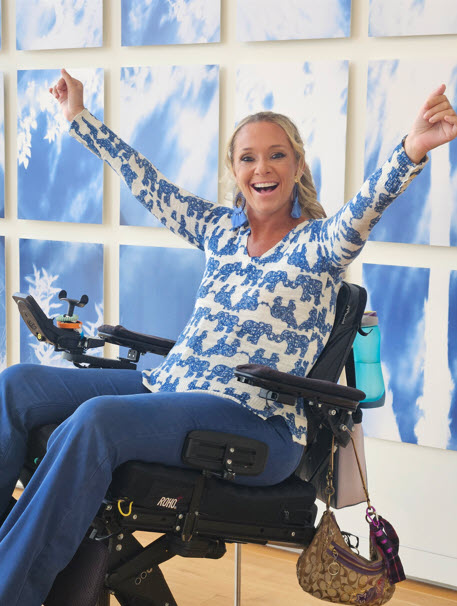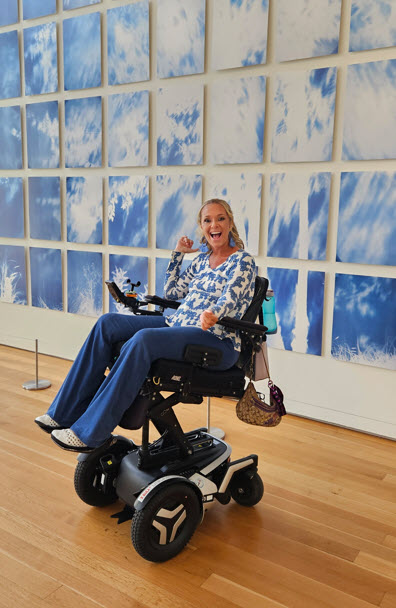
📬 The most nerve-racking piece of mail I’ve opened in years: a denial letter from my health insurance provider.
Not just a denial for a new wheelchair — a denial of continuity of care. A denial of common sense.
WHAT I ASKED FOR
That my long-time wheelchair provider — Stalls Medical — historically in-network for years, be put back in-network to supply my new wheelchair (a Permobil F3).
Why? Because a wheelchair isn’t a “buy it anywhere” item. It’s a complex, custom medical device that determines my health, independence, and survival.
WHY IT MATTERS
This isn’t about a chair. This is about the ATP (Assistive Technology Professional) I’ve worked with for nearly a decade.
ATP’s aren’t salespeople. They are highly trained experts in seating systems, pressure relief, biomechanics, and mobility. My ATP knows my body inside and out — how the smallest adjustment can keep me healthy.
Since working with this ATP, I haven’t had a single serious pressure sore. That’s not luck. That’s skilled care. Without that? I’d be back in a hospital bed, costing the system hundreds of thousands more than a properly fitted chair.
HOW I BACKED IT UP
I didn’t just beg. I built a case:
📚 Peer-reviewed journal articles
📁 Past medical records
💸 Billing data showing the costs of pressure sores vs. the cost of a chair
🩺 Letters from my medical team
THE RESPONSE I GOT
Still denied. Their reasoning? “Members can go to any in-network provider.”
Here’s the problem: not all providers are equal. Some don’t employ trained ATPs. Some have never worked with quadriplegics. And yet, to insurance, we’re all the same checkbox in a drop-down menu.
THE BIGGER PICTURE
In 2022 alone, there were 67 million prior authorization denials in U.S. marketplace health plans. Only 48,000 people appealed.
That’s one-tenth of one percent.
Why? Because most people assume “denied” is the end of the story. Or they don’t have the health, literacy, or support to fight.
That’s the business model:
🩻 Deny.
⏳ Delay.
💸 Discourage.
…until the patient gives up. Or dies. Whichever comes first.
WHAT I DID NEXT
Thankfully, I do know how this works. Within 24 hours, I filed a full appeal. I used every tool in my toolbox, including a very specific legal argument called continuity of care — buried in their own corporate medical policy.
And guess what? I won. 🏆

THE VICTORY
My new chair has been approved and ordered.
But this isn’t just my win. I’m donating my old chair back to Stalls Medical, who will donate it to the ALS Foundation. Because victories like this should ripple outward.
WHAT COMES NEXT
I’m not done.
I’m working with national Complex Rehab Technology coalitions, suppliers, and corporations to share my strategy. The continuity of care argument is legal, ethical, and effective. It can help countless others keep their trusted providers.
Because here’s the truth: proper continuity of care doesn’t just improve lives — it saves billions in long-term hospital costs from complications caused by ill-fitting equipment.
WHY I FIGHT
I’ve always said I’m the scientist of my own life. This was an experiment. And it worked.
But more importantly, this was a reminder that when we fight, we don’t just fight for ourselves. We fight for the ones who can’t.
💚 Always pay it forward.



